The first time Emmanuel Macron put himself before voters, at the age of 39, in 2017, he sailed into the second round of France's presidential election. Two weeks later, he comprehensively beat far-right challenger Marine Le Pen to become the youngest president in France's history.
The third election he contested, on April 10, saw him top the field in the first round of the 2022 presidential poll. If he wins in the second round on April 24, again against Le Pen, he'll have secured another five-year term in the Elysee Palace.
Read more:
Spotlight: Marine Le Pen, third time lucky?
Four elections and four wins would have a neat symmetry for the 44-year-old, but with his National Rally rival running a sharper and smarter campaign this year – and only two French presidents having won reelection since 1965 – there are no guarantees.
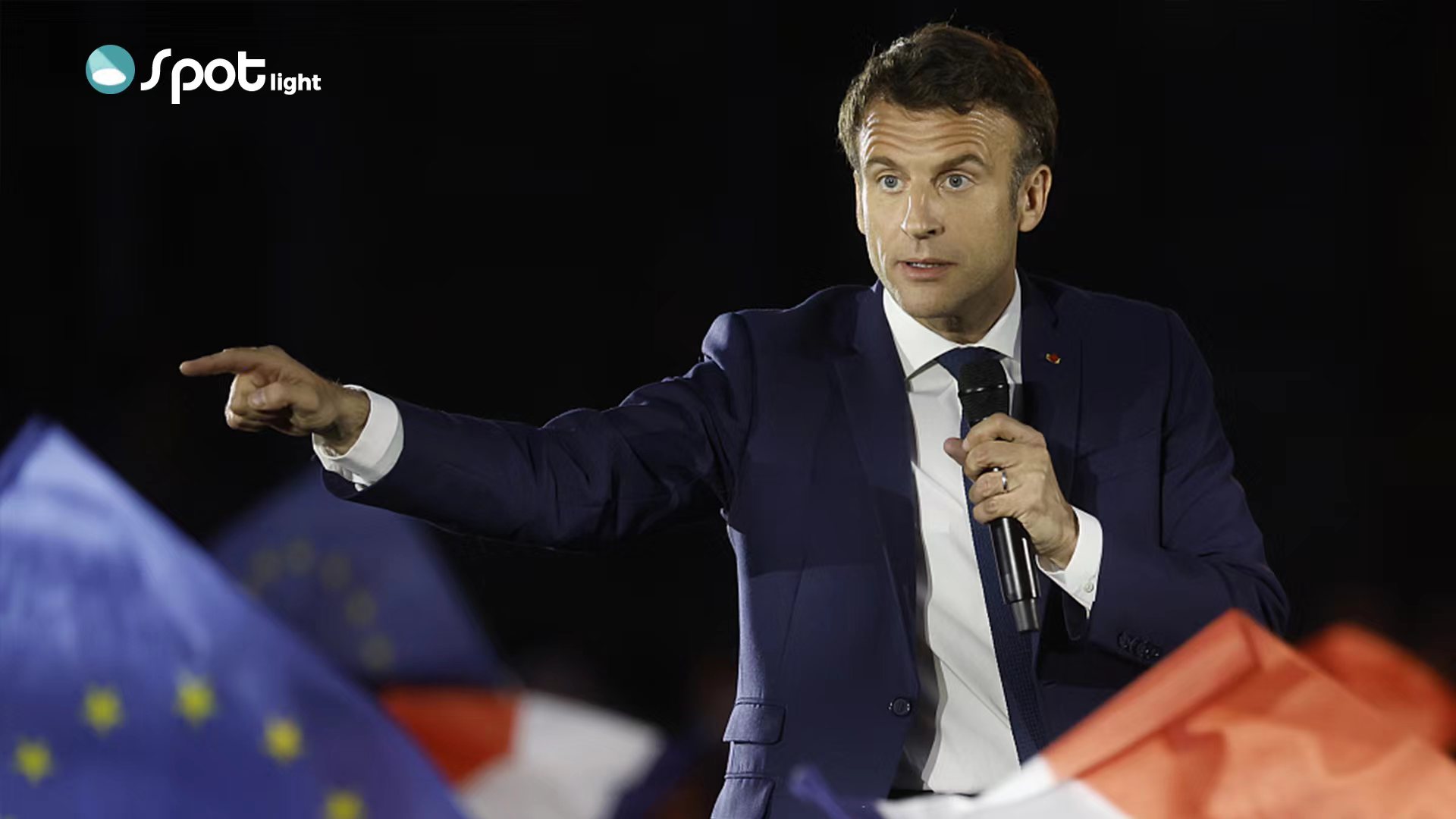
Back in 2017, in the wake of the Brexit vote and the election of Donald Trump, Macron was a disruptor of a different kind.
Breaking the dominance of the two major French parties – the right-wing Republicans and the Socialists – by running an insurgency campaign that was "neither left nor right," he was a fresh-faced pro-European liberal, an outsider despite having a similar background to many in the French elite, offering voters a mainstream off-ramp from the politics of the past.
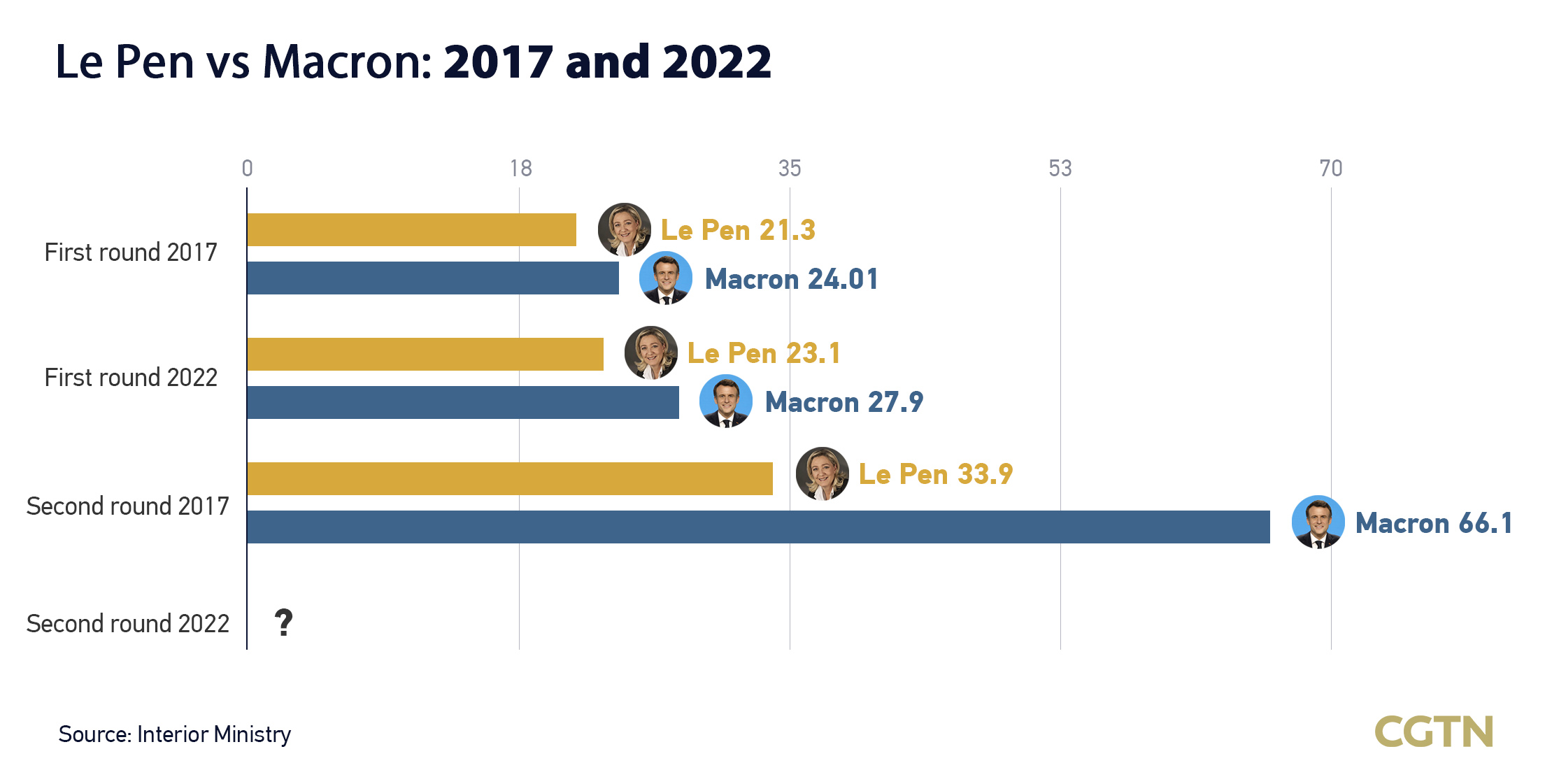
In 2022, he's no longer a fresh face and his record has received mixed reviews. Unemployment is down and productivity is up, while taxes have been cut, yet his plans for a fuel tax led to the long-running yellow-vest protests and amid global pressures the cost of living is rising.
On the surface, his first-round result this time around was an improvement on 2017. He scored nearly four points more and recorded the highest percentage for an incumbent in over three decades.
However, the very disruption he helped bring about five years ago – hobbling the two old parties, and recruiting much of their talent – has created an unpredictable electoral dynamic and a wave of tactical voting.
In 2022's first round, the Republicans and Socialists took less than 7 percent combined, leaving the top four candidates as Macron, who can loosely be described as a centrist, followed by rivals on the far-right, far-left and further-right. Candidates on the traditional extremes took over 50 percent of the overall vote.
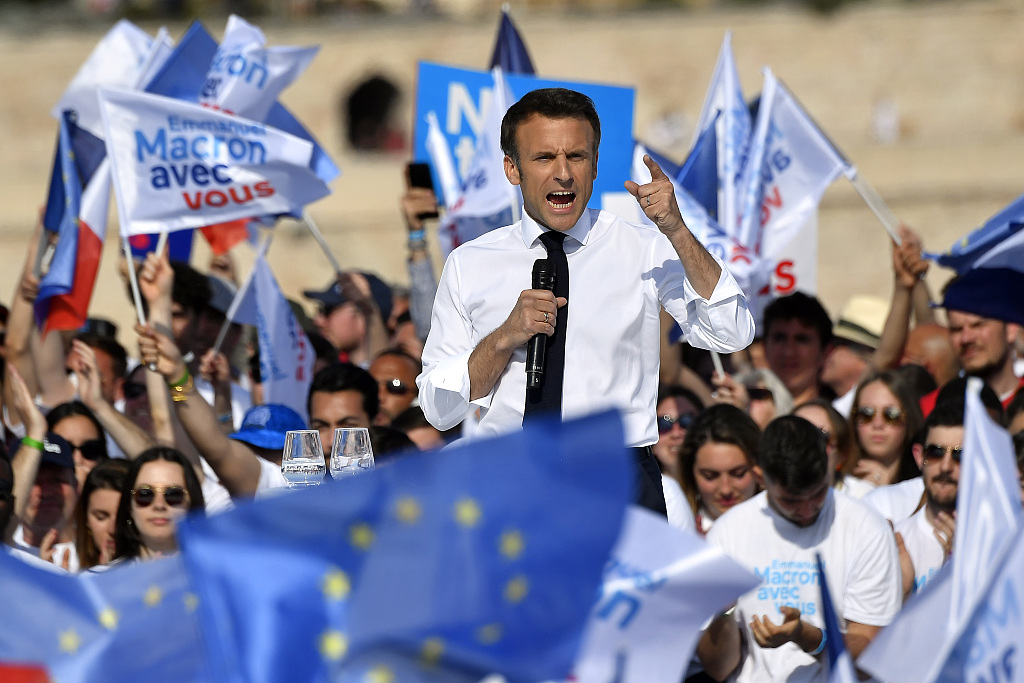
Emmanuel Macron addresses voters in Marseille, France on April 16, 2022. /CFP
Emmanuel Macron addresses voters in Marseille, France on April 16, 2022. /CFP
The president, often technocratic and sometimes described by opponents as arrogant and out of touch, now has a record to run on, which, coupled with his detailed style, makes his task against free-wheeling candidates all the more tricky. His positions remain both socially and economically liberal, stances that put him in the mainstream while placing traditional allegiances under strain.
While some voters applaud him for competence, noting employment and productivity have improved on his watch, others, particularly on the left, are less convinced that his big tent has delivered for the working class, particularly as everyday prices rise.
That could be a problem, seeing as the big voting bloc up for grabs is that of the far-left candidate Jean-Luc Melenchon, who came in a surprisingly strong third place on April 10. Macron has been endorsed by the Green Party's Yannick Jadot, but while Melenchon has urged his supporters not to vote for Le Pen the leftist has not signaled they should support the president.
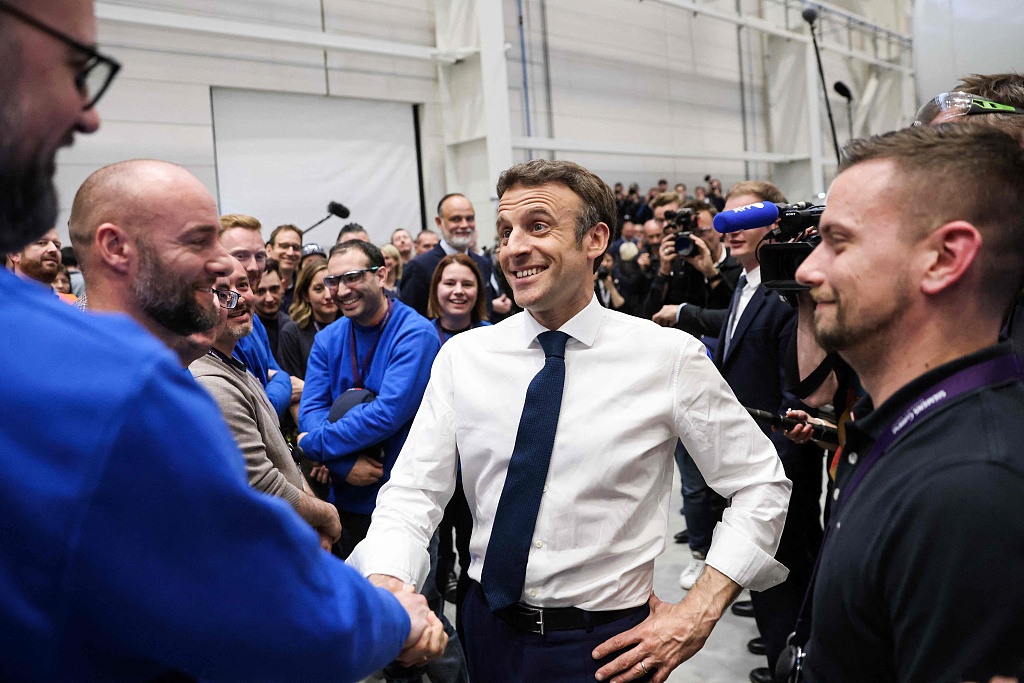
Emmanuel Macron shakes hands as he speaks to Siemens Gamesa's workers, who produce wind turbines, in Le Havre, France on April 14, 2022. /CFP
Emmanuel Macron shakes hands as he speaks to Siemens Gamesa's workers, who produce wind turbines, in Le Havre, France on April 14, 2022. /CFP
Macron's team will hope that Melenchon's strong showing was in part a tactical protest signaling he should address the left's concerns, and that many will back him in the runoff against Le Pen. He has pivoted to environmental issues, traditionally important to left-wing voters, over the past week.
The worry for the president is less that many Melenchon voters will back his far-right rival – though her working class appeal will surely attract some, and distrust of the business-friendly Macron will sway others – and more that they will choose not to vote at all. According to a survey by Melenchon's party, only a third of his voters say they plan to back the president on April 24.
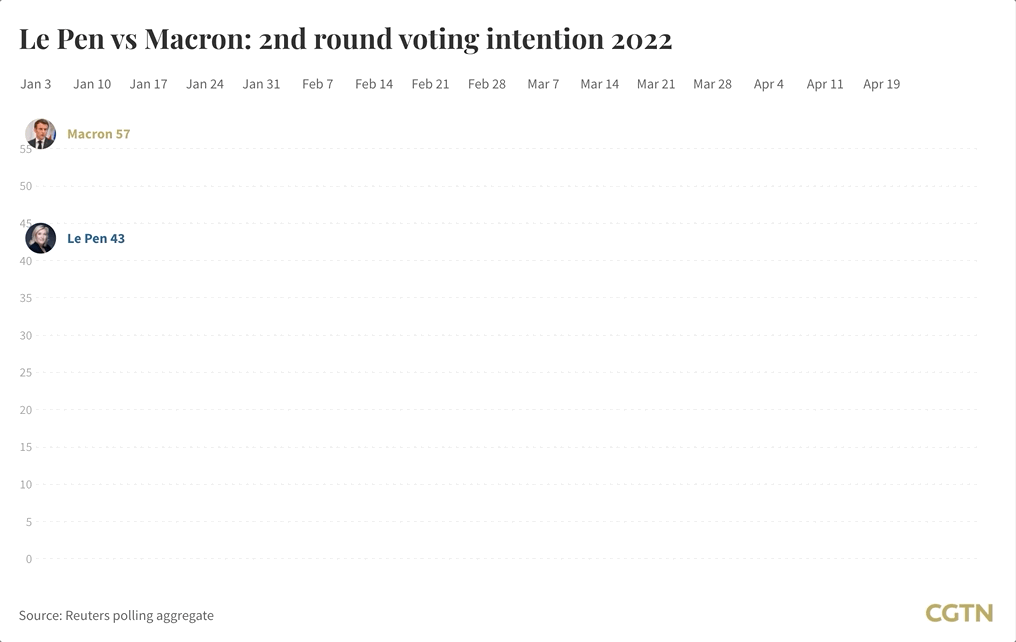
Macron spent the early parts of election season deeply involved in diplomatic attempts to resolve the crisis in Ukraine, and his role as an attempted peacemaker was initially popular with voters, polls suggest, but as the crisis has continued that polling bump has evaporated.
And while he launched his candidacy late and opted not to take part in a multi-candidate debate ahead of the first round, Le Pen intensified her years-long campaign to attract rural and market town voters by focusing her attention on pocketbook issues like energy and food prices.
The latest Reuters aggregate of polling averages suggests that Macron has, after a sharp tightening around the first round, stretched his lead to around 10 points. That would be a big win if reflected in the final voting, even if significantly down on his victory margin in 2017, but with a potentially pivotal debate scheduled for Wednesday night there is still all to play for.
He has hit the campaign trail hard over the past week and the head-to-head debate with Le Pen will be an opportunity for both.
Five years ago her poor debate performance dashed any hopes she had of victory, this time Macron will surely have a more difficult evening – not least because he now has a record to attack and Le Pen has tightened and rebranded her policy platform.
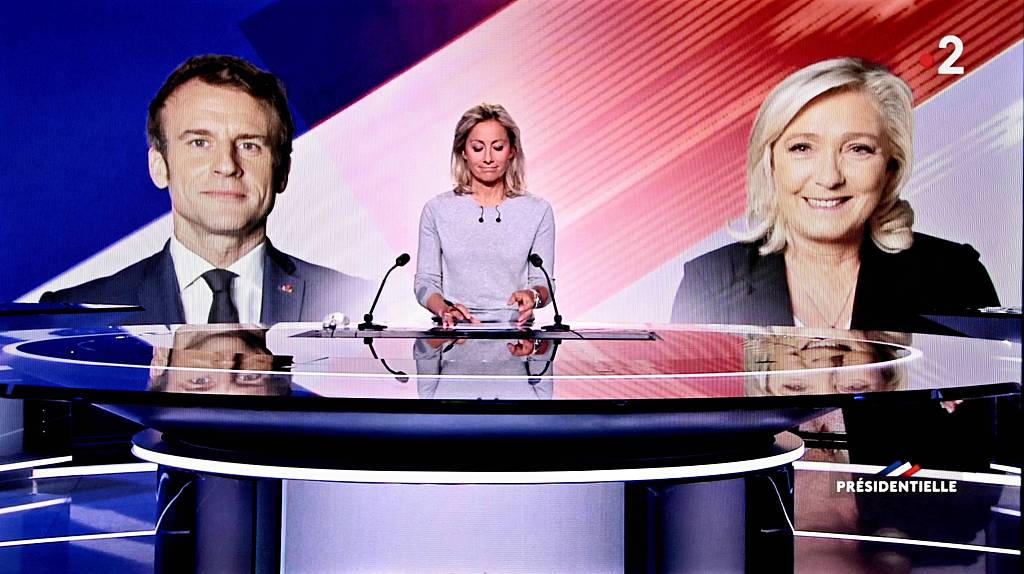
Emmanuel Macron and Marine Le Pen will take part in a televised debate on April 20, 2022. /VCG
Emmanuel Macron and Marine Le Pen will take part in a televised debate on April 20, 2022. /VCG
The president has put forward an ambitious investment plan and full employment within five years, as well as tax cuts amounting to 15 billion euros for households and businesses. Proposals for controversial reforms to pensions and benefits to pay for it, including incrementally raising the retirement age from 62 to 65, have not been widely welcomed, however.
It's an election which could also have major consequences for the European Union and the Western alliance. Macron is pro-European and wants to play the leading role in the EU following the departure of Germany's Angela Merkel; Le Pen is highly skeptical of Europe, wants a partnership with Russia and wants France to leave NATO's integrated command structure.
Observers within France and beyond will be watching closely to see if Macron can make it four wins out of four – it's an election which will have profound consequences, whatever the result.
Graphics by Zhao Hong, Yu Peng

